SHARE
News:
Freedoms Under Pressure: Experts Warn of Expanding Digital Surveillance Threats
At the panel discussion “Freedoms Under Pressure: Civil Society and Digital Oversight in Serbia and Abroad”, organised by the Belgrade Centre for Security Policy (BCSP) on 31 October in Belgrade, speakers warned that digital surveillance and spyware use are rapidly becoming tools of political control in Serbia and across Europe, posing severe risks to human rights and democracy.
The discussion brought together Nikola Ristić, activist and spyware victim, Marta Pardavi, Co-Chair of the Hungarian Helsinki Committee, Ruairi Nolan, Deputy Programme Director at Amnesty International, and Aleksa Tešić, journalist from BIRN, moderated by Predrag Petrović, BCSP Research Director.
From Security to Surveillance
In his opening remarks, Predrag Petrović underlined that the spyware industry has become a multi-billion-dollar global business, with governments increasingly using intrusive technologies to monitor citizens.
“The defence industry is worth tens of billions of dollars, and the spyware sector alone exceeds ten billion. As our lives move online, and as Serbia slides deeper into autocracy, the question is – are we truly powerless, or are there solutions?” Petrović said.
Igor Bandović, BCSP Director, noted that this discussion marks one of the first steps in establishing the Civil Society Digital Security Network, a BCSP initiative aimed at strengthening the digital resilience of civil society actors in the Balkans.
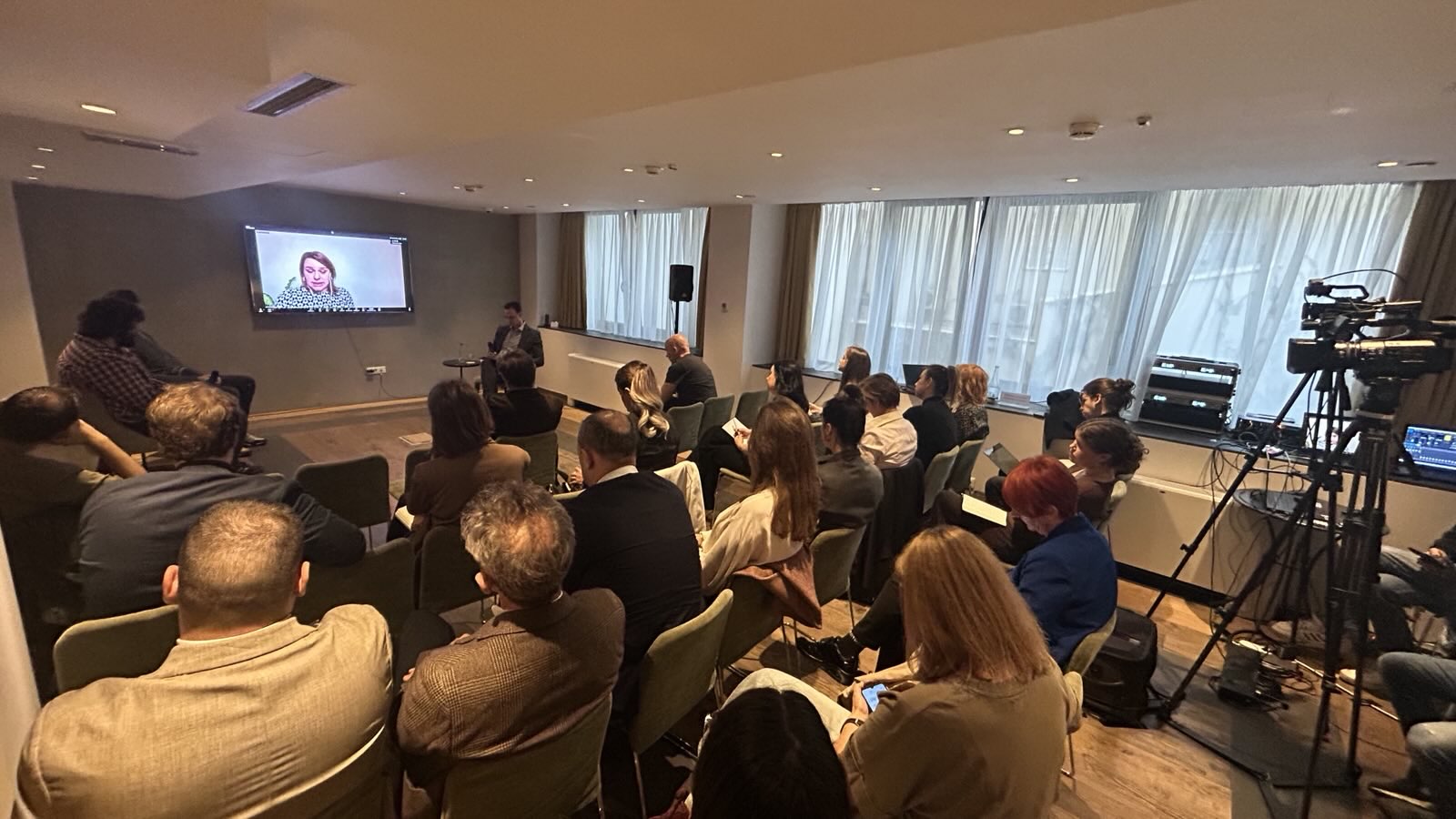
A Firsthand Account of Surveillance and Intimidation
Activist Nikola Ristić shared a harrowing personal account of kidnapping and intimidation by men claiming to be from Serbia’s Security and Information Agency (BIA), after he announced a protest against corruption.
“They showed me BIA badges, but had no warrant or papers. One of them pointed a gun at me and said: ‘You know we can break into your apartment at night and put you on the floor with guns.’”
Ristić later discovered his phone had been infected with spyware.
“I still haven’t processed that I’m a victim. They took my phone – luckily, it was a secondary one – and later I found out it had been infected,” he said, adding that the experience underscored how vulnerable activists remain in Serbia.
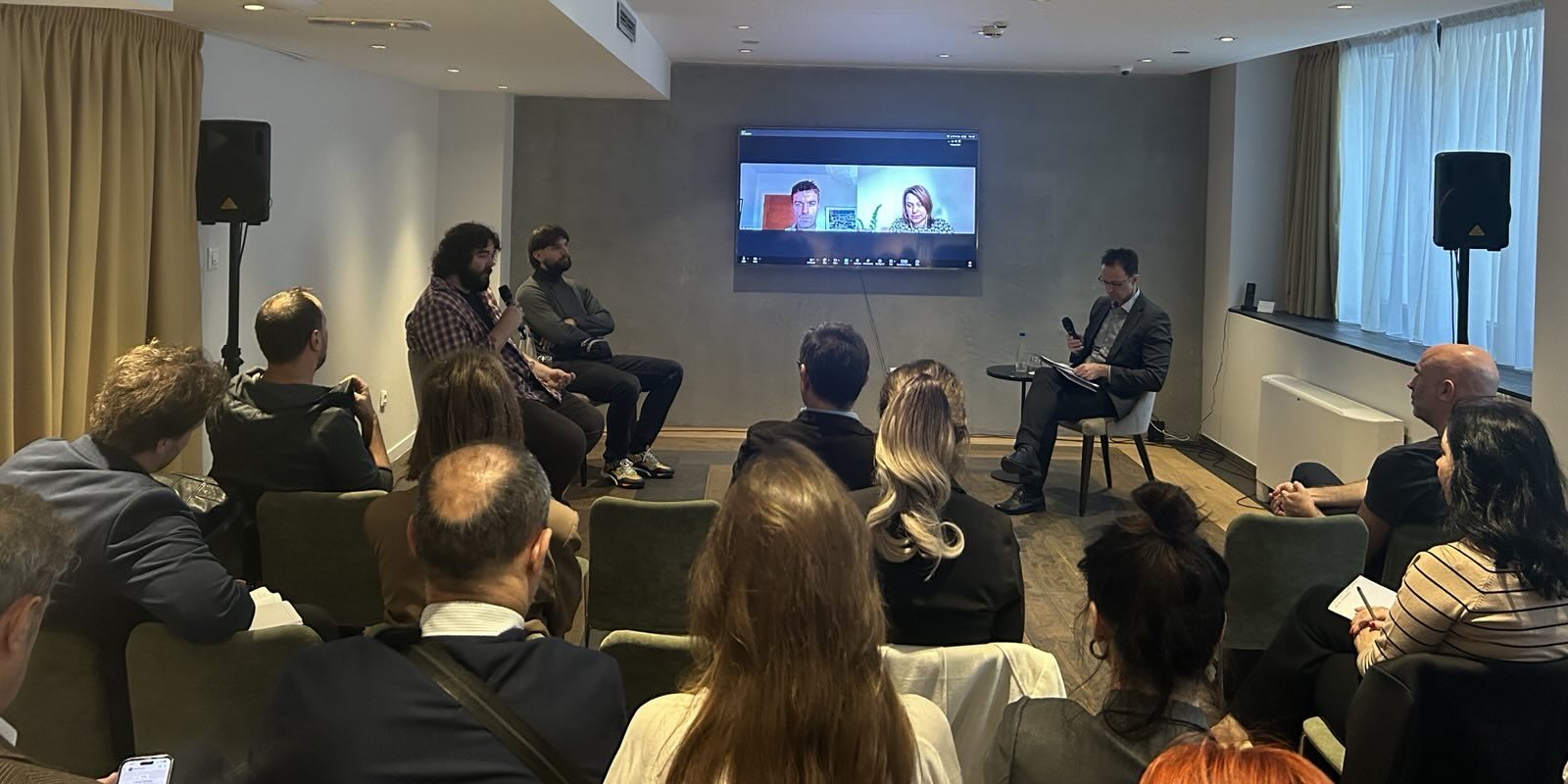
Journalists Under Watch
Aleksa Tešić from BIRN highlighted Serbia’s long-standing links with Israeli surveillance technology, referencing documents from WikiLeaks and parliamentary hearings that revealed government and public company purchases of advanced monitoring tools.
“Serbia has cameras and software capable of tracking anyone. We have proof of purchases for institutions like EPS. These tools are also used by political figures to spy on each other,” Tešić explained.
Although Serbia has installed surveillance cameras in multiple towns, Tešić noted that it remains unclear whether the country is a regional leader in digital monitoring, despite government claims.
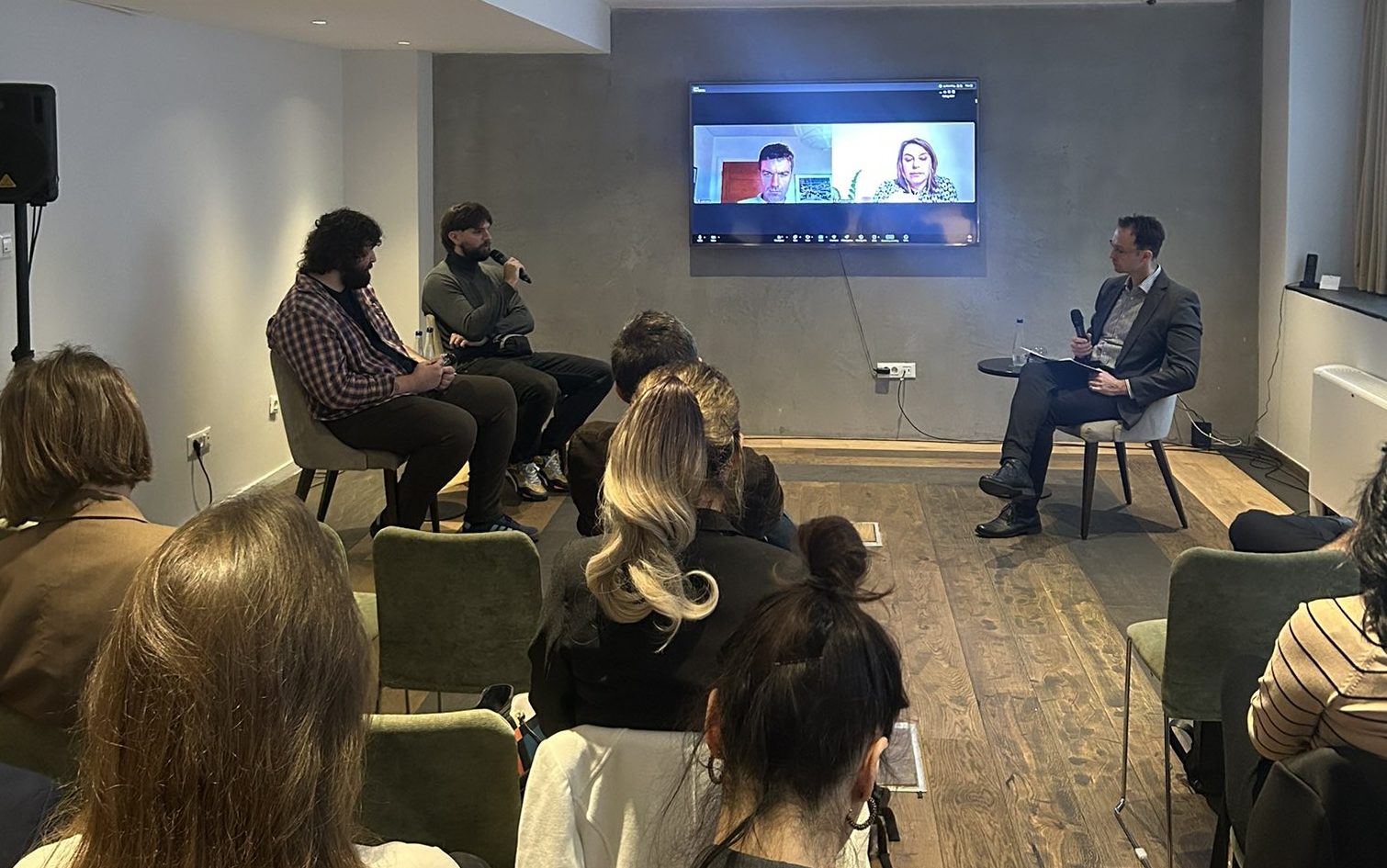
The Hungarian Experience: Chilling Effects and Legal Gaps
Drawing parallels with Hungary, Marta Pardavi described how surveillance and smear campaigns have been weaponised to silence civil society.
“When it was revealed that Pegasus was used by the Hungarian government, officials claimed it was legal and not directed at citizens – which was demonstrably false,” Pardavi said.
She warned that the “chilling effect” of constant fear and self-censorship has become the government’s most effective tool.
“When I listen to these discussions in Serbia, I fear that this is what may lie ahead,” she cautioned.
Despite legal battles and EU oversight, Pardavi said there has been little progress:
“Advocacy and understanding of the problem have grown, but progress in the legal framework is not on the horizon.”
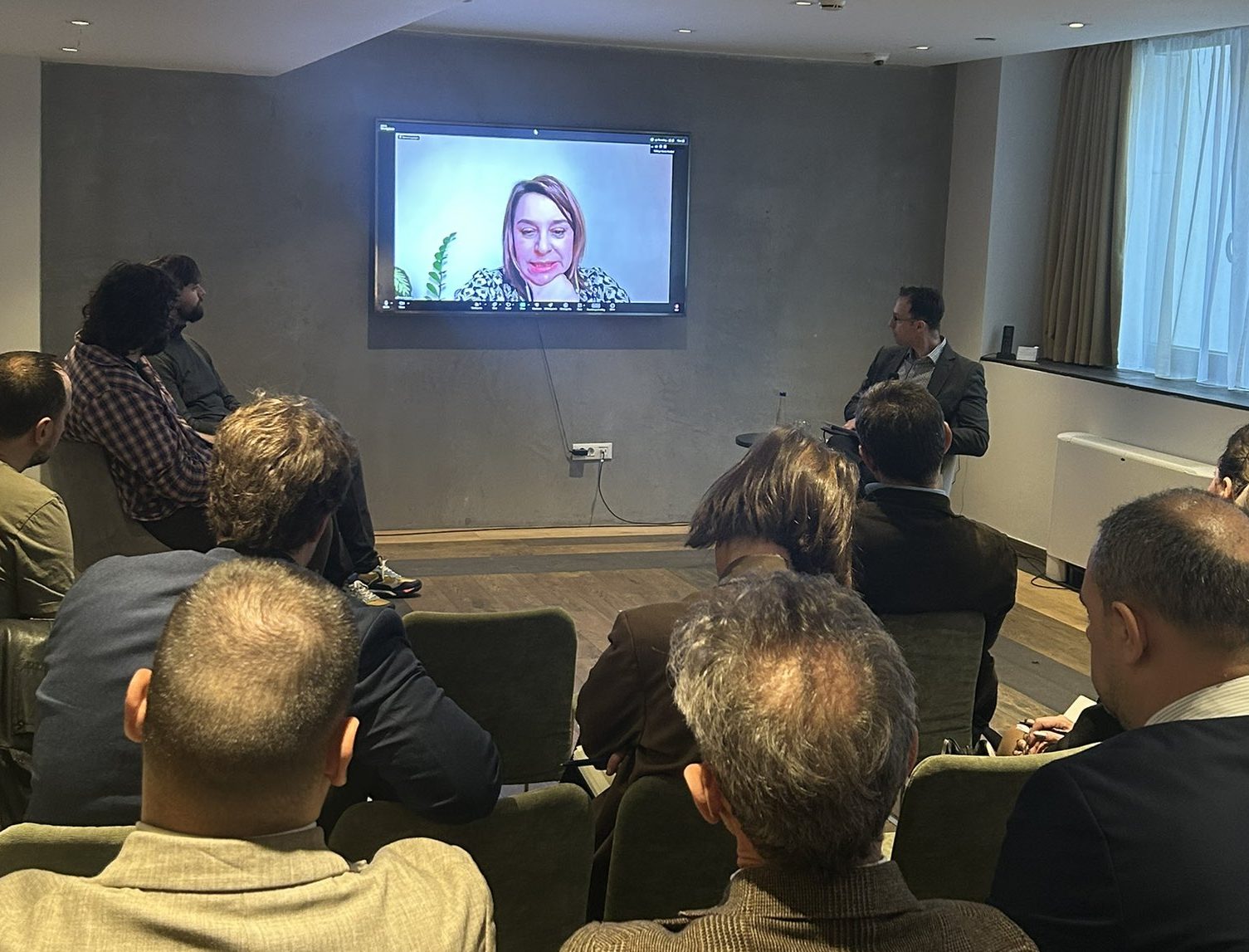
A Global Surveillance Crisis
According to Ruairi Nolan of Amnesty International, the misuse of surveillance tools is not limited to authoritarian states.
“We are in the midst of a global surveillance crisis – one of the most pressing human rights challenges of our time,” he said.
Nolan pointed out that governments often justify spyware use as counterterrorism, but in reality, these tools are “used against citizens, journalists, and political opponents.”
“Even in countries with strong rule of law, like Spain, we’ve seen spyware used against Catalan political figures. The number of victims may be small, but the impact on free speech is enormous.”
He emphasised that existing laws have failed to keep pace with technology:
“In Serbia, seizing someone’s phone is treated as non-invasive, but once you access all the data, that is an extreme invasion of privacy. The law must recognise this.”
Nolan concluded that while national regulation is possible, meaningful international oversight remains blocked by a lack of political will.
“Governments invoke national security to justify everything. It’s up to civil society to push for safeguards.”
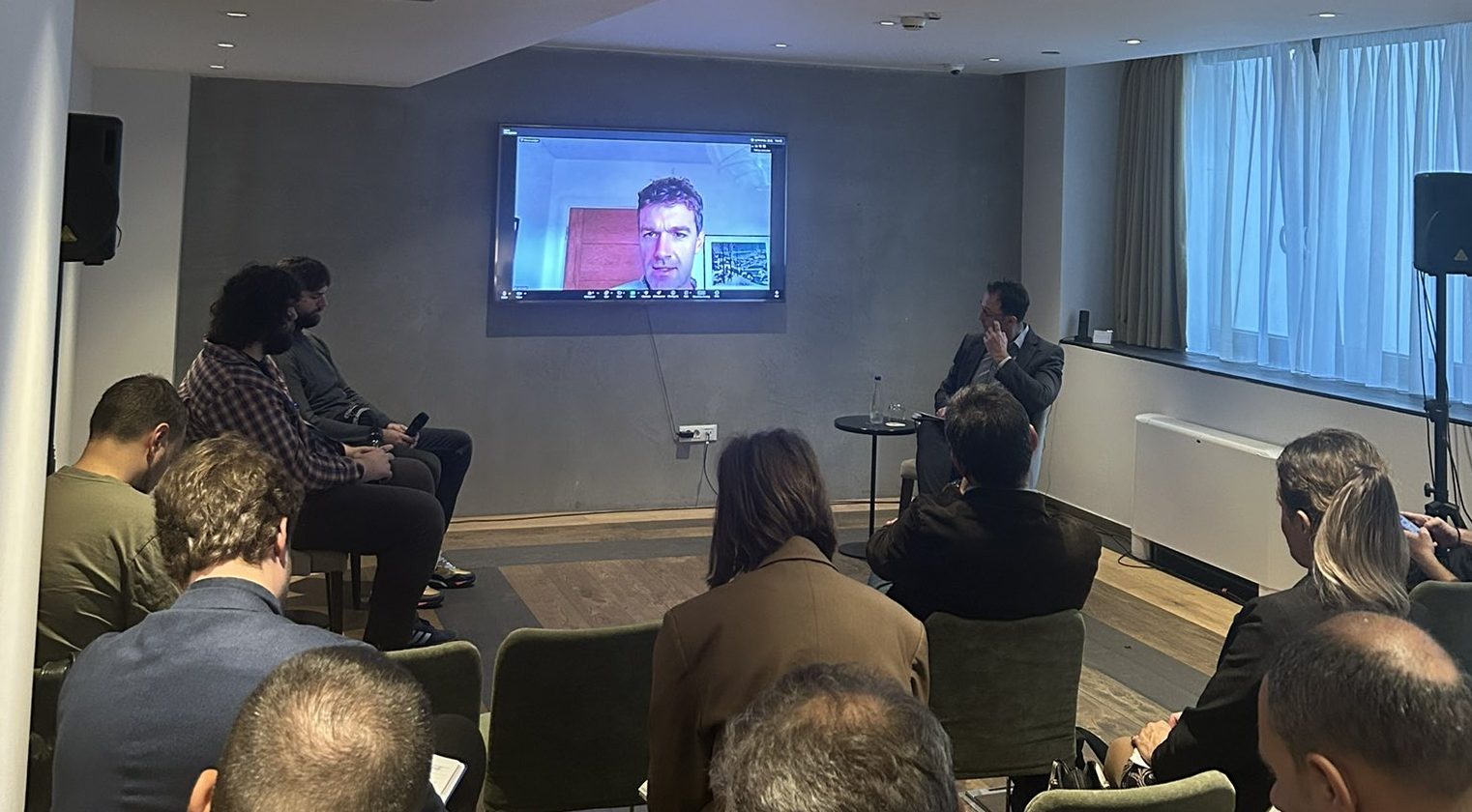
Next Steps: Building Resilience
The discussion closed with calls for stronger international export controls on spyware technologies, greater accountability of private companies, and support for those affected.
“Many companies claim to have human rights policies, yet their tools are repeatedly used to violate rights,” Ristić warned. “This industry must be regulated.”
BCSP’s Civil Society Digital Security Network, launched through this event, aims to address precisely these challenges – by helping journalists, activists, and NGOs strengthen their digital resilience, share experiences, and push for democratic oversight of surveillance technologies.
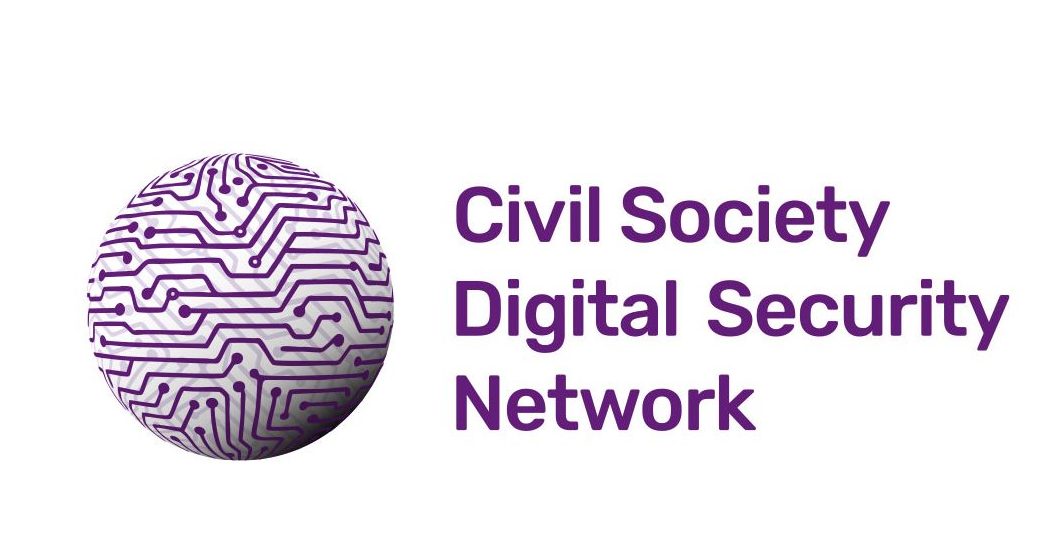
RELATED

Date: 18.12.2025.
Author: Belgrade Centre for Security Policy
The Civil Committee for the Protection of Human Rights Defenders and Whistleblowers strongly condemns the threats directed at journalist Vuk Cvijić, which occurred on December 17 and were allegedly triggered by an article he wrote for the weekly Radar.

Date: 28.11.2025.
Author: Belgrade Centre for Security Policy
The Belgrade Centre for Security Policy (BCSP) recently received an official notification from the Microsoft Threat Intelligence Center regarding a cybersecurity incident affecting our systems.

Date: 18.09.2025.
Author: Belgrade Centre for Security Policy
The Civil Committee for the Protection of Human Rights Defenders and Whistleblowers calls on the competent Public Prosecutor’s Office to immediately act upon information about an alleged plot to assassinate student Pavle Cicvarić, as publicly stated on Informer television by Siniša Vučinić, a member of the Main Board of the Serbian Progressive Party.


